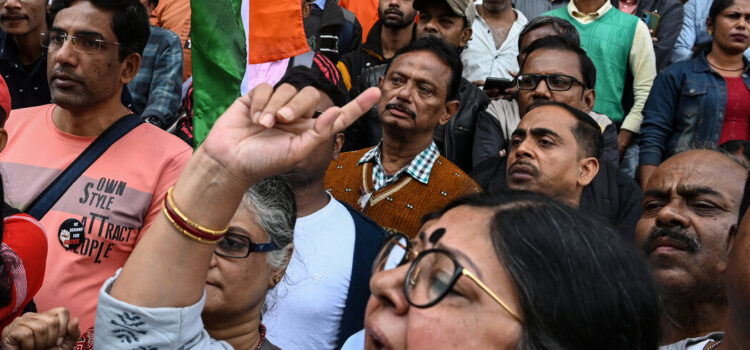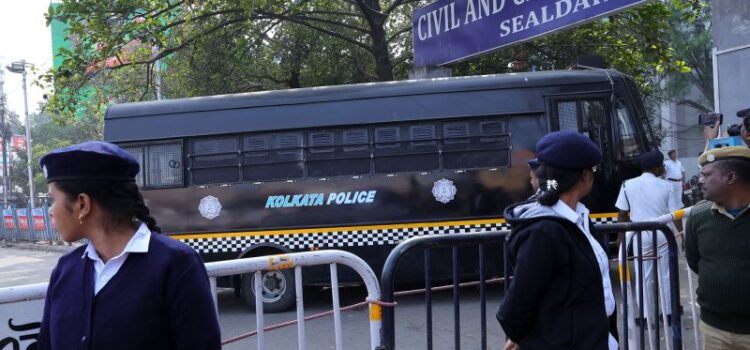
An Indian court on Monday sentenced to life in prison the man convicted of raping and murdering a trainee doctor in Kolkata, sparing him the death penalty in a case that was a chilling example of how the country remains unsafe for women.
The killing in August led to months of protests and political turmoil in the state of West Bengal, of which Kolkata, formerly Calcutta, is the capital.
India’s Central Bureau of Investigation, its equivalent of the F.B.I., had asked the court to hand down a death penalty for Sanjay Roy, the perpetrator. So had the victim’s family, and the powerful chief minister of the state, Mamata Banerjee.
But the court ruled that Mr. Roy’s crimes did not meet the “rarest of the rare” standard used to justify executing those convicted of capital offenses.
Rekha Sharma, a former chief of the National Commission for Women and a member of Parliament, told an Indian news agency that “the victim’s family and all of us are really sad” that Mr. Roy avoided the death penalty. A member of Prime Minister Narendra Modi’s party, she blamed the sentence on shortcomings of the Kolkata Police, who answer to Ms. Banerjee.
Before the sentencing, Mr. Roy, who had served as a volunteer with the Kolkata Police, said he was not guilty. “I haven’t done this. I have been framed,” he told the court on Monday. Months ago, he had said that the written confessions he gave to police were obtained by force.
Details about the crime were murky for several days after the body of the 31-year-old victim was found in a seminar hall at a university hospital in Kolkata. They were also horrific, in a way that recalled a notorious case of rape and murder in New Delhi in December 2012 that also led to mass protests and, eventually, to four hangings.
In the Kolkata case, the junior doctor had gone to sleep on a mattress she had placed on the floor in the early hours of Aug. 9, after a grueling hospital shift. After her body was discovered, the authorities said she had been raped and strangled. Police arrested Mr. Roy after he was identified in CCTV footage entering the building before the attack and wearing headphones that were found at the crime scene.
The public reaction was extraordinary, and escalated over the next few months. Thousands of doctors across the city went on strike to demand safer working conditions. They were joined by many thousands of Indians, incensed at what they regarded as callous treatment of the victim’s family and efforts at a cover-up.
“People are convinced that this was connected with wholesale corruption in the medical college,” said Jawhar Sircar, a former civil servant who joined Ms. Banerjee’s political party but resigned in September over what he said was graft under her rule, and the role that it seemed to play in the Kolkata hospital rape and murder case.
A spokesperson for Ms. Banerjee, one of Mr. Modi’s most vocal rivals, greeted the sentencing by posting on social media that the politician and the Kolkata police had been vindicated by the verdict. But many protesters, Mr. Sircar added, had taken to the streets to rally against what they perceived as corruption under her long stint as chief minister of West Bengal.
And now, after the sentencing, the widespread feeling, Mr. Sircar said, was that “by selecting this guy, and punishing him, only partial justice has been done.”












Comments